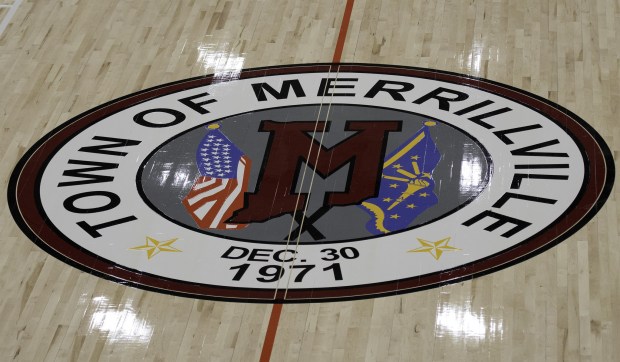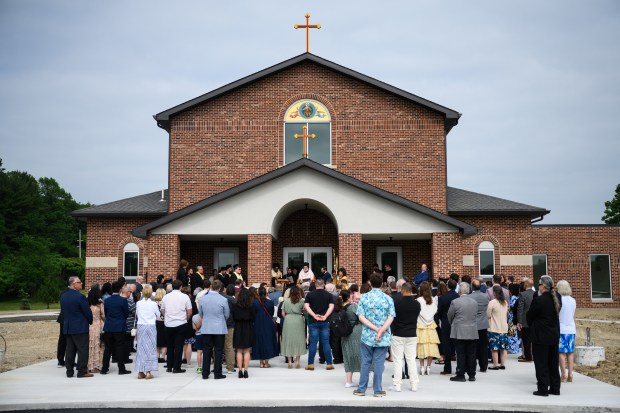Indiana local government associations have expressed concern with a bill addressing property taxes with the system Gov. Mike Braun campaigned on.
Senate Bill 1, authored by Sen. Travis Holdman, would change the homestead standard deduction amount to 60% of the homestead’s assessed value if the value is more than $125,000 or $48,000 plus 60% of the remaining assessed value if the homestead has an assessed value of $125,000 or less.
The bill states a controlled project or a school tax levy referendum can be held only at a general election in an even-numbered year. It also requires the Department of Local Government Finance to develop and maintain a property tax transparency portal.
The language in the bill regarding homestead deductions is verbatim what Braun campaigned on when running for governor.
Matt Greller, the CEO of Accelerate Indiana Municipalities, said the bill takes the deepest cut to property taxes compared to pieces of legislation proposed in the last 10 years. If the bill passed as proposed it “would dramatically alter” the revenue streams for local governments “in a significant way,” Greller said.
“It would require noticeable service cuts by municipalities, by counties, by schools,” Greller said.
The town’s seal adorns the athletic courts at the Dean & Barbara White Community Center on Broadway in Merrillville. (Michael Gard/Post-Tribune)
But, Greller said he does not believe the bill will pass as presented. As the bill moves through committees, Greller said it will likely get amended before session ends in April.
“Lot of work to do, but this is a challenging starting point,” Greller said.
While no one likes paying a property tax, Greller said the taxes are used to fund municipal services, like snow removal, maintenance for roads and streets, public safety and schools. A decrease in property taxes would mean a decrease in public safety response times, fewer police officers on patrol, among other things, Greller said.
“It’s a tough position for homeowners and legislators to look at because yes, at the front end it sure sounds nice to pay less in taxes, but on the back end if we have a loved one who needs EMT service do we want that provider to get there in four minutes or do we want them to get there in 15 minutes?” Greller said.
School districts, municipal government and public safety officials throughout the state have contacted AIM about Senate Bill 1 because those groups “have a very strong interest and concern in how this discussion moves forward,” Greller said.
Michael Griffin, a former state senator and interim Merrillville Town Manager, said he read Senate Bill 1 and his concern with the bill is its fiscal impact as laid out in the fiscal note of the bill.
The fiscal note calls for a 2% property tax growth cap, which would result in local governments receiving less revenue, Griffin said. In Merrillville and Highland, seven entities, from schools to public safety, share property tax revenues, so that 2% cap would mean fewer funds for those entities, he said. Griffin served as Highland’s Clerk-Treasurer for 32 years.
“I am hoping that the legislature will be thoughtful in considering the bill and its fiscal impact,” Griffin said.
The Association of Indiana Counties sent an email, which was obtained by the Post-Tribune, to encourage county leaders to reach out to legislators and Braun about Senate Bill 1 because it “would have an incredibly negative impact on local government funding, including county revenues.”
Braun’s plan to increase deductions on homesteads, roll back property tax bills to pay 2022 levels, and cap growth after the 2022 tax bill would have a negative impact on local government budgets, according to the email.
AIC’s email referenced a Legislative Services Agency report that found in 2026 the revenue hit to local governments would be $1.15 billion, and by 2028 the revenue hit would be $1.64 billion. The county share of the total, according to the report, would be $300 million.
“The loss of this revenue will hit every local budget, and surely lead to dramatic cuts in services,” according to the AIC email.
Holdman, R-Markle, said on the first day of session that he expects Senate Bill 1 to change as legislators balance property tax reform and funding for schools and local governments.
“Our goal is to find the sweet spot,” Holdman said. “It’s a long way until Sine Die (end of session) in April, but I’m optimistic that we can get something important done for the Hoosier taxpayer this session.”
The legislators have discussed allowing cities and towns over a certain population to adjust income tax levels to make up the difference in lost revenue, Greller said. But, after a short while, income tax would tap out, which would mean wages would have to increase, he said.
“There has been some talk of replacement mechanisms, but it would almost be a necessity to use them and then where do you go from here and where does the growth come from after that,” Greller said.





